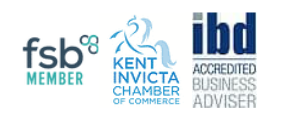Productivity is the real secret to success, satisfaction in your work, more profits and even more free time to spend it in. Yet most of us find that being continually productive difficult to achieve; This applies even more to business Directors who have several people working for them and new projects, customer or staff queries and distractions happening all the time.
1. Eradicate useless and tedious tasks from your daily routine
There are plenty of tasks we like to do every day or week that we should not be doing and are not worth your time or effort. Some of these we do to put off from work that’s hard, some of them we do because we genuinely enjoy them (esp. Social media). Whatever the reason you do them, it’s time to let go and not to pretend you’re working when you’re not.
Make a list of all the tasks you complete each week – from talking to clients to emptying your email inbox and ask yourself if a task can be eliminated or delegated, or if it truly furthers your business to achieve your objectives.
If a task is important to your business, then is it still a task you should be doing? If it is a task you shouldn’t be doing or can delegate, then it’s time to give it up. Here, an office junior or assistant can be surprisingly affordable, if you start with just a few hours a week or hire someone who is self-employed, like a Virtual Assistant, with flexible hours?If you have employees it’s most important that ensure you are scheduling them effectively. Are you doing administration work they could be doing for you? Are you spending hours trying to figure out whether your staff are overloaded, or if you have enough staff and where you need more resources or support? These tasks are typical time wasters and can be easily managed with better scheduling and even mobile applications focused on time tracking.
2. Plan every single day to be Productive
Plan each day / week / month and schedule how you will best spend your time. Of course, your plan will need to be flexible, but if you establish a productive routine for your average day, you won’t be wasting time wondering what to do next or what to prioritise. Take the time to delegate and outsource tasks and projects to other team members or staff. Your job should be running the business and ensuring everything is being done correctly—not dealing with tedious tasks: Focus on what’s important, not what’s urgent.
3. Find your perfect personal time management tool
There are many Project and Task management tools / Apps / Diaries out there, so try out a few and then see which one best suits you and one that you will actually use.Also, don’t forget the benefit of just writing down tasks on a simple To-Do list. If you don’t like using digital tools, use a paper planner or diary, whatever works for you.
4. Prioritise and value your time
Plan each day or week and look at the time you’ve scheduled for groups of Tasks. You’ve likely blocked out an hour in the morning for admin tasks and an hour at the end of the day to reply to vital emails and manage urgent Tasks that have popped up. However, even more important than scheduling your own time is scheduling the time of each of your employees & team members. This is something every Director needs to consider when trying to improve productivity across the board. Your time is valuable, but maybe not as valuable as a whole team being continually time efficient & productive?
There are a variety of tasks that need to be completed each day and each one has its own level of importance or priority. When you plan your Task list for the day or week, block out periods of time for getting your most vital tasks done. These are times that cannot be interrupted. Your staff and team members should be blocking out important time periods as well. The more you understand the importance of task management, the more you and they will get done.
5. Focus on three primary tasks daily
Every day choose just 3 primary tasks to accomplish. These 3 tasks should be doable within the day and will help you progress toward achieving your higher goals. These are the tasks you should do first, if you complete these tasks, you can complete other tasks on your To-Do list if you have time. If you reach the end of the workday with your 3 most important tasks completed, you can go home knowing you have been productive and used your day well. The same holds true for your employees and team members; If your staff can complete at least 3 planned tasks each day, productivity will increase across the whole company.
At the company level, you can also apply the “choose just three” rule to set goals for each quarter or even each year—just scale up the goal. If you make your goals and tasks specific, you will achieve much more than you ever have before.
6. To be productive, be healthy and happy
If you want to be productive each and every single day, you need to understand that you are not a robot. The most successful business people prioritise their mental and physical health by getting enough sleep, eating good food throughout the day, working out, taking time out, managing their stress and valuing their time with friends and family.
Schedule time for yourself, as well as for your business. Many people try to be more productive so they can fit in more work into the same amount of time. But if you don’t give yourself time to relax and recuperate, you’ll feel stressed all the time and your relationships with your family will be strained. You have to value your time outside the office, as well as in it, so use any boosts in Productivity to leave your work at the office at the end of the day.
7. Be accountable and reward yourself for success
To increase productivity within the workplace it’s recommended to have fellow employees and team members find a colleague who will be accountable for how they are spending their time and how productive it is. Not only will this help them with the process, but it also can lead to them feeling good when their 3 tasks are completed each day, week or month.
8. One should also be aware of how to celebrate successes
—no matter how big or small. When you complete your day’s tasks, do you find something else to fill your time or let yourself relax? When you achieve a big goal, do you celebrate it? If you never pause to appreciate your successes, you won’t feel like you are making progress or a sense of achievement, and it is this that keeps us motivated and productive day after day.
9. All Small Business Directors & Managers need to Schedule their own priorities:
Do not prioritise what you have on your schedule, rather schedule your priorities. Remember the Pareto principle – 80% of results would come from 20% of the tasks. Make sure that you schedule your vital tasks before everything else – Urgent tasks are best delegated. The Pareto principle does not just allow you to schedule better, it also tells you that within each task you should push to get the 80% results through the 20% crucial bits first.

